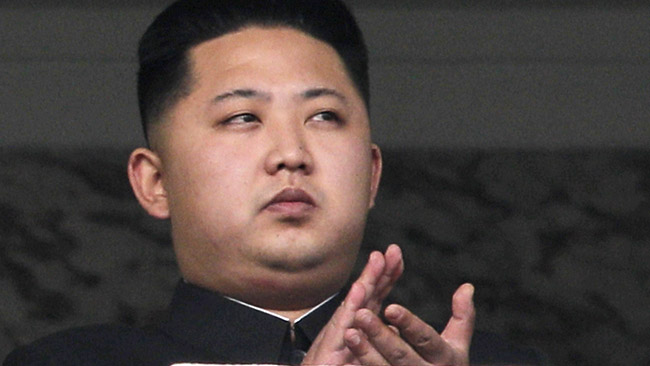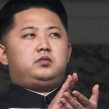
Russia Reacts to the Korean Succession
Publication: Eurasia Daily Monitor Volume: 9 Issue: 27
By:

As Russia is a member of the six-party talks on North Korea’s nuclear program and a neighbor of North Korea, it naturally was concerned by the announcement of Kim Jong-Il’s sudden but not altogether unexpected death on December 17, 2011. Moscow quickly sent official condolences to the new North Korean regime and contacted the South Korean government (www.kremlin.ru, December 19, 2011). Foreign Minister Sergei Lavrov said he did not expect Kim’s death to affect Moscow’s friendly relations with North Korea (Interfax, December 19, 2011).
This public lack of anxiety became the official line very quickly. Mikhail Fradkov, the Director of Russian foreign intelligence (SVR) said he had no serious concerns over North Korea even though all intelligence services were trying to make sense of the new situation in the DPRK and attempting to analyze what problems could be expected there and how power will be arranged. Fradkov also stated that if the new leader Kim Jong Un encountered difficulties, the collective North Korean leadership would help him find consensus given their experience. Therefore, he expressed measured optimism about the trends there (Rossiya 1, December 24, 2011).
But beyond this facade of optimism, there is clearly concern that the new leadership might turn its back on the Russo-North Korean initiatives announced in August 2011, during the Kim-Medvedev summit, namely a gas pipeline and railroad line connecting Siberia with the two Koreas. Since the succession, there has been no public statement as to these projects from Pyongyang. Russia is also concerned about US policies. The noted Korea expert, Georgi Toloraya, opined that this project would have to wait until the North Korean government consolidated itself and until South Korea assessed the new situation in a way that justified further progress. Toloraya also expected a very cautious approach in the North to reforms (Interfax, December 20, 2011).
Moscow, and certainly the military as well, are also convinced that all the proliferation issues today, not least North Korean proliferation, are directly due to the US effort to supposedly resolve all outstanding international issues in international relations through the “the use of disproportionate military force” (Interfax-AVN, December 16, 2011). Russian politicians are still harping on the alleged US effort to “drive North Korea into a corner” (RIA Novosti, January 10). Thus, the “essence of Russia’s position” lies in the impermissibility of doing this and bringing Pyongyang into an international dialogue (RIA Novosti, January 10).
It is also noteworthy that the Russian commentary was utterly silent about the fact that most diplomatic communications to try and gauge where the new North Korean government is going, and who might be able to exercise restraining influence upon it, centered on Beijing and not Moscow. This flurry of diplomatic activity once again confirmed Moscow’s relative marginalization in the process. And, true to form, the silence about this, or about efforts by other parties like the US and its allies to determine if they should proceed along a new course, also evoked silence from Moscow.
Finally, what is also particularly interesting is that expert commentary as opposed to statements by authorities or political figures, showed divided assessments of North Korea. The most well-known established experts who have been following the DPRK for years and have certain sympathy for its position, e.g. Alexander Vorontsov, the head of the Korea and Mongolia Studies Division of the Institute of Oriental Sciences of the Academy of Sciences, states that the new DPRK regime’s statements of hostility to South Korea apply only to bilateral relations and will not affect resumption of the six-party talks. Thus, Vorontsov criticized Seoul’s “malevolence” to the new North Korean government (Interfax, December 30, 2011). Other less establishmentarian analysts were less tolerant of North Korea. Alexei Malashenko of the Carnegie Endowment openly wrote that major reforms are quite unlikely and is clearly critical of the North Korean regime (Interfax, December 19, 2011).
But perhaps the most surprising statement came from the Institute of World Economics and International Relations (IMEMO). According to an article published in South Korea – tellingly the Russian media was silent about this – IMEMO expects North Korea to collapse in the late 2020s (The Korea Times November 4, 2011). It expects a reunification process to begin in the late 2020s, and speculated about a leadership upheaval due to deepening clashes between the military and the government. IMEMO further predicted that South Korea would continue its development and progress toward being a major economic powerhouse, while the North will essentially fall apart due to the lack of elite cohesion under the new regime (Korea Times, November 4, 2011). It is noteworthy that their prognosis does not reflect the government’s policy and that there was virtually total media silence about it in Moscow.
This suggests a divide among experts and between the more critical voices in the government, which is inclined to see the perpetuation of the status quo and rewards to North Korea as the only way to peace on the Korean peninsula even as Pyongyang develops nuclear weapons. It is never clear just how much influence expert think tanks have on policy. But the official complacency linked to this critical prognosis suggests a large gap in this case in Russia. Moreover, the silence about China’s influence on North Korea and the continuing attempts to blame the US, strongly suggest that without fundamental changes in the situation in and around the Korean peninsula it would be fallacious on our part to expect a major change in Russian policy toward supporting the US and its allies on the issues connected with North Korean nuclearization.




